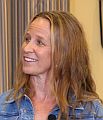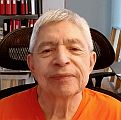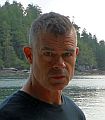GEORGIA BASIN INTER-REGIONAL EDUCATIONAL INITIATIVE: “A defining moment for me was the Salmon in the City Conference in 1998. It was a memorable event,” stated Susan Haid, career environmental and urban planner in BC local government, and adjunct assistant professor at the University of British Columbia

“It is really heartening to observe the recent renewed interest in what I think of as ecosystem-based planning and is now often called green and blue systems in cities,” stated Susan Haid. “It sounds simple, but it is heartening because this has NOT really been a key theme in the public dialogue for some time. The pandemic has reminded us of the importance of green space and access to nature. It is even more important now because in 1997 we did not have the kind of weather extremes such as atmospheric rivers and heat domes that we are now regularly experiencing.”










